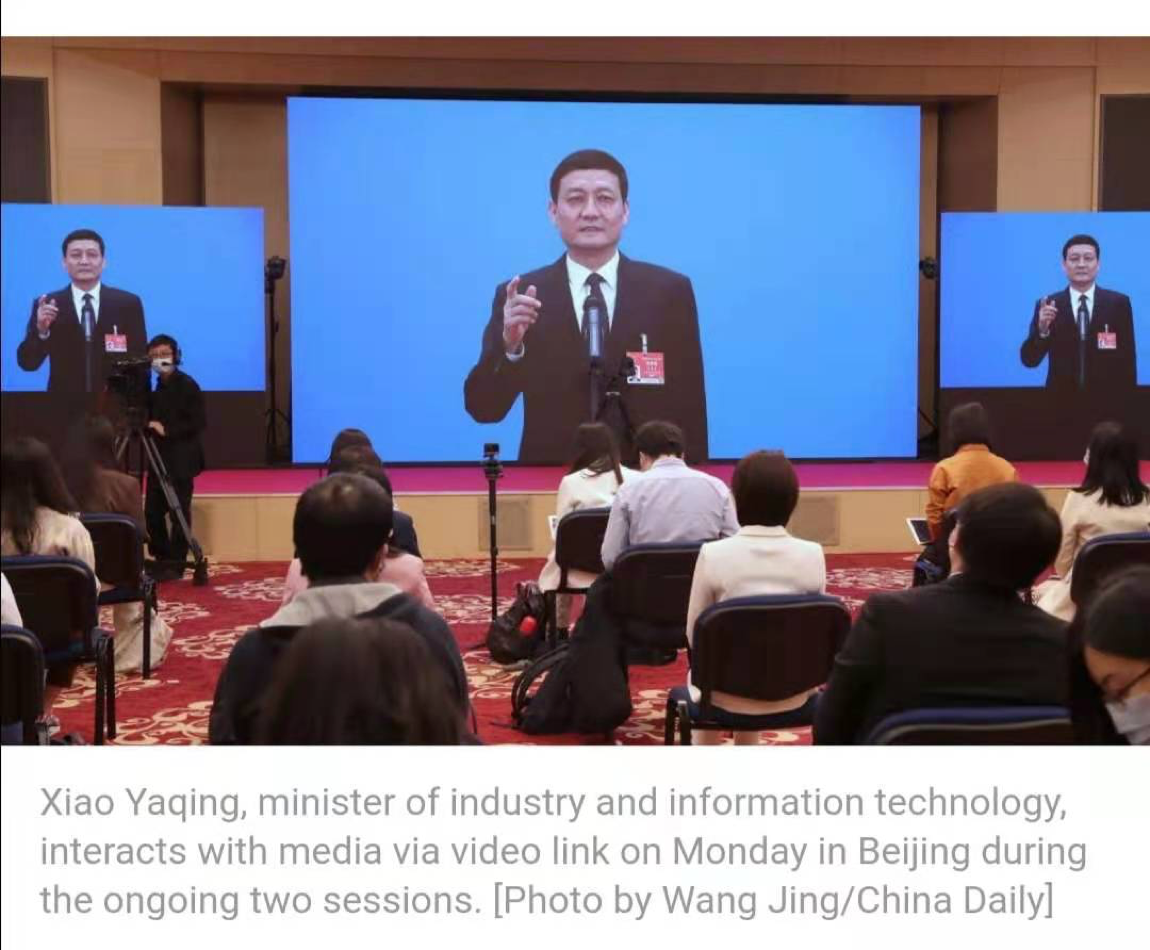Xiao Yaqing, Minister of China's Ministry of Industry and Information Technology (MIIT) spoke to the press on Monday during the on-going Fourth Session of the 13th National People’s Congress - China's legislature. He said that more efforts will be made to ensure high-quality development of China's manufacturing sector and improve the quality of its products and services.

He made the point against the backdrop of a gradual decline in the proportion of the manufacturing industry in China's GDP since 2015. The bigger background is a continuous increase of China's economic aggregate. Xiao said, "China always attaches high importance to the development of the manufacturing industry. It is the lifeblood of the country's economy, and the real economy should be further improved and strengthened," Xiao said.
"It takes a long time to maintain a stable proportion of the manufacturing industry, and more measures are necessary to attract capital and talent to the sector," he added.
Xiao Yaqing, 61, succeeded former minister Miao Yu, as the new minister of MIIT last September. Xiao’s previous position was Director-General of State Administration of Market Regulation. Miao Wei, 65, is now the deputy director of the Economic Affairs Committee of the National Committee of the Chinese People's Political Consultative Conference.
Miao also spoke to the press last Sunday and pointed out that China should promote the next level of integration of the innovation and industrial chain and speed up the improvement of systems and mechanisms that are conducive to high-quality development of its manufacturing sector, according to a China Daily report.
Promoting high-quality growth of the manufacturing industry is a major strategic task in China's economic development at present and in the future, said Miao.
Miao is known for his cool-headed but ambitious viewpoints that in the four-tier structure of global manufacturing business, China is in the third echelon, and it will take at least three decades to achieve the goal of becoming a manufacturing powerhouse.
Even though China's manufacturing industry has made great achievements in recent years, it still faces the challenge of being big but not strong, he said, adding that many fundamental capabilities are still weak and key core technologies are restricted by other economies.
A notable decline in China's manufacturing business in the country's GDP will not only drag down current economic growth and affect urban employment, but will also generate potential industrial safety hazards and weaken the country's anti-risk capabilities and international competitiveness, Miao added.
Under such circumstances, China must deepen reforms of the scientific and technological system, scientifically allocate resources, and promote the deep integration of the innovation chain, industrial chain, policy chain, capital chain, and the talent chain in the next stage, he said.
In face of a boom in China's semiconductor industry investment and 5G network construction, Minister Xiao stressed the importance to prevent any duplication of projects in the newly emerging strategic areas such as ICs and 5G networks. “The development of new industries should not rush up and should be done in an orderly manner, in accordance with market regulations and under the rule of law,” Xiao said.
As a result of U.S. semiconductor export controls on China, investment in China's semiconductors hit records in the number of projects and amount of money invested. The total number of equity investment projects in China's IC sector exceeded 400, reaching RMB140 billion (US$21.5 billion), four times more than the previous year, according to data reported in the Chinese language press. Meanwhile, at least six busted investment bubble projects, involving billions of dollars.
On the 5G front, China has rolled out 718,000 5G base stations throughout the country, mostly scattered in large and medium-sized cities, including 330,000 shared among the country’s four major telecom operators, data from the MIIT showed. More than 600,000 5G base stations were built and put into operation in China in 2020, a spokesperson from the MIIT said at a press conference in January. China aims to complete the construction of the 5G network during the 14th Five-Year Plan (2021-25) period, according to a Global Times report.


 登录
登录








